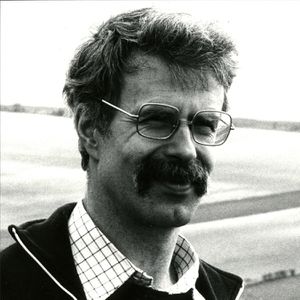Difference between revisions of "Jonathan Harvey"
Martinwguy (talk | contribs) (Undo revision 14512 by Martinwguy (talk)) |
Martinwguy (talk | contribs) |
||
| Line 6: | Line 6: | ||
<BLOCKQUOTE> | <BLOCKQUOTE> | ||
| − | “Jonathan and Delia met at the National Youth Orchestra where they became friends. They were at Cambridge at the same time, where Jonathan studied music. In 1958, they went to Expo'58 in Brussels together, where they heard Varese's "'' | + | “Jonathan and Delia met at the National Youth Orchestra where they became friends. They were at Cambridge at the same time, where Jonathan studied music. In 1958, they went to Expo'58 in Brussels together, where they heard Varese's "''[[Poème Eléctronique]]''", a groundbreaking piece at the time. When Delia subsequently went on to the Radiophonic Workshop, Jonathan pursued his interest throughout the 1960's and 70's in electronic music at universities' science facilities including Princeton and Bell Labs in the US, before working extensively at IRCAM during the 80's and 90's where the piece ''Mortuos Plango, Vivos Voco'' was written, amongst many others. |
<BR><BR> | <BR><BR> | ||
I believe a piece of Jonathan's called "Symphony" (1966) was partly inspired by Delia's "Amor Dei", and "Symphony" did go on to inform some of his later work, though not Mortuos Plango, which is completely different (if you listen to it you will agree!). You can read more about "Symphony" here and although there is no mention of "Amor Dei", Jonathan did mention the link between the two pieces to me in conversation, saying he liked the breathing quality of the repeated chords..dquo;<ref>Personal communication from his daughter, May 2017.</ref>. | I believe a piece of Jonathan's called "Symphony" (1966) was partly inspired by Delia's "Amor Dei", and "Symphony" did go on to inform some of his later work, though not Mortuos Plango, which is completely different (if you listen to it you will agree!). You can read more about "Symphony" here and although there is no mention of "Amor Dei", Jonathan did mention the link between the two pieces to me in conversation, saying he liked the breathing quality of the repeated chords..dquo;<ref>Personal communication from his daughter, May 2017.</ref>. | ||
Revision as of 19:28, 20 May 2017
Jonathan Harvey, born in 1939, was a major music scholar at St John’s College, Cambridge.[1]
In Delia Derbyshire's eightieth birthday special, Stuart Maconie claims that Delia's music for Amor Dei was "a huge influence on the famous electro-acoustic piece Mortuos Plango Vivos Voca [actually Voco] by the British composer Jonathan Harvey who Delia was at university with" but, as usual, he can't get his facts straight. In fact:
“Jonathan and Delia met at the National Youth Orchestra where they became friends. They were at Cambridge at the same time, where Jonathan studied music. In 1958, they went to Expo'58 in Brussels together, where they heard Varese's "Poème Eléctronique", a groundbreaking piece at the time. When Delia subsequently went on to the Radiophonic Workshop, Jonathan pursued his interest throughout the 1960's and 70's in electronic music at universities' science facilities including Princeton and Bell Labs in the US, before working extensively at IRCAM during the 80's and 90's where the piece Mortuos Plango, Vivos Voco was written, amongst many others.
I believe a piece of Jonathan's called "Symphony" (1966) was partly inspired by Delia's "Amor Dei", and "Symphony" did go on to inform some of his later work, though not Mortuos Plango, which is completely different (if you listen to it you will agree!). You can read more about "Symphony" here and although there is no mention of "Amor Dei", Jonathan did mention the link between the two pieces to me in conversation, saying he liked the breathing quality of the repeated chords..dquo;[2].
References
- ↑ Jonathan Harvey's biography at fabermusic.com
- ↑ Personal communication from his daughter, May 2017.
